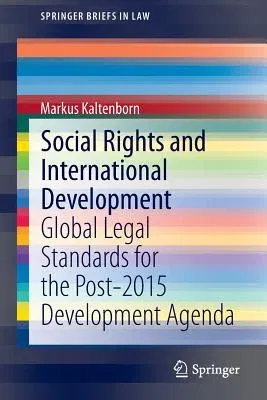Markus Kaltenborn
(Author)Social Rights and International Development: Global Legal Standards for the Post-2015 Development Agenda (2015)Paperback - 2015, 19 November 2014

Qty
1
Turbo
Ships in 2 - 3 days
In Stock
Free Delivery
Cash on Delivery
15 Days
Free Returns
Secure Checkout
Part of Series
Springerbriefs in Law
Print Length
117 pages
Language
English
Publisher
Springer
Date Published
19 Nov 2014
ISBN-10
3662453517
ISBN-13
9783662453513
Description
Product Details
Author:
Book Edition:
2015
Book Format:
Paperback
Country of Origin:
NL
Date Published:
19 November 2014
Dimensions:
23.39 x
15.6 x
0.69 cm
Genre:
Sociological
ISBN-10:
3662453517
ISBN-13:
9783662453513
Language:
English
Location:
Berlin, Heidelberg
Pages:
117
Publisher:
Series:
Weight:
190.51 gm

